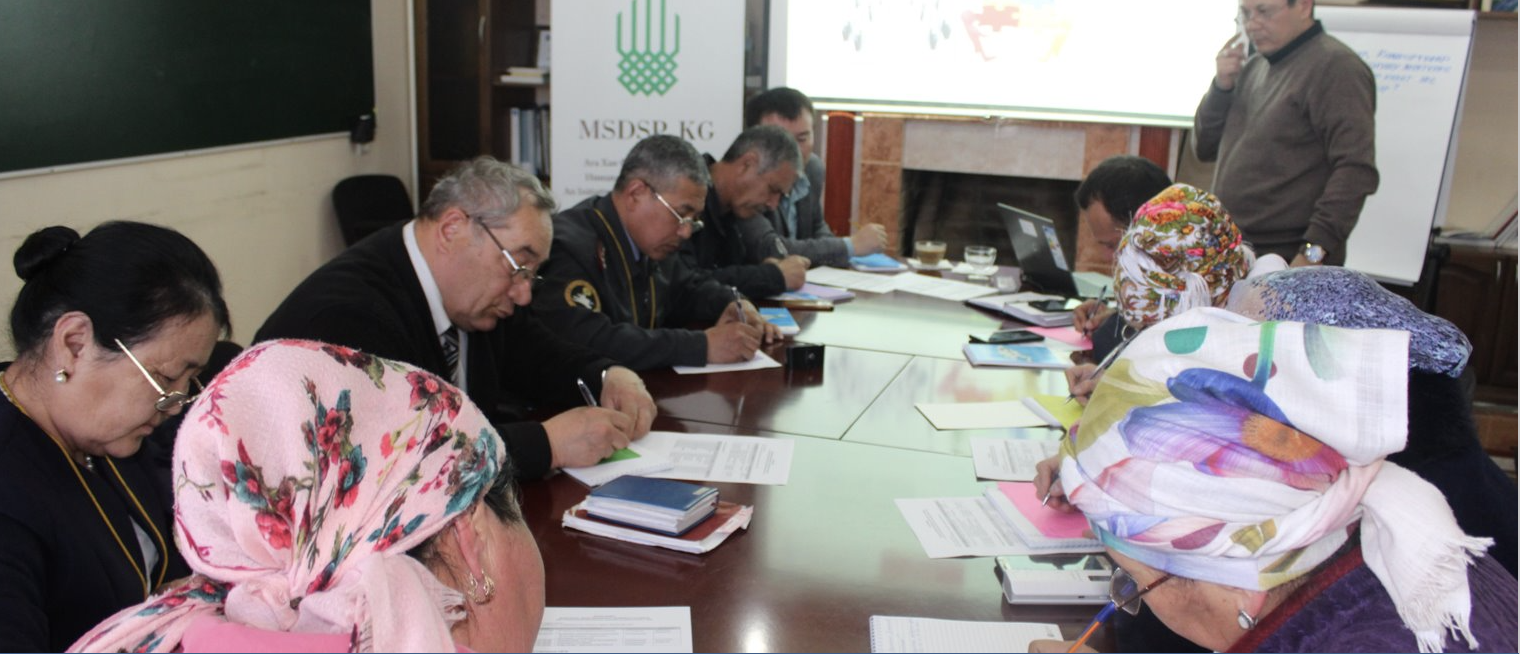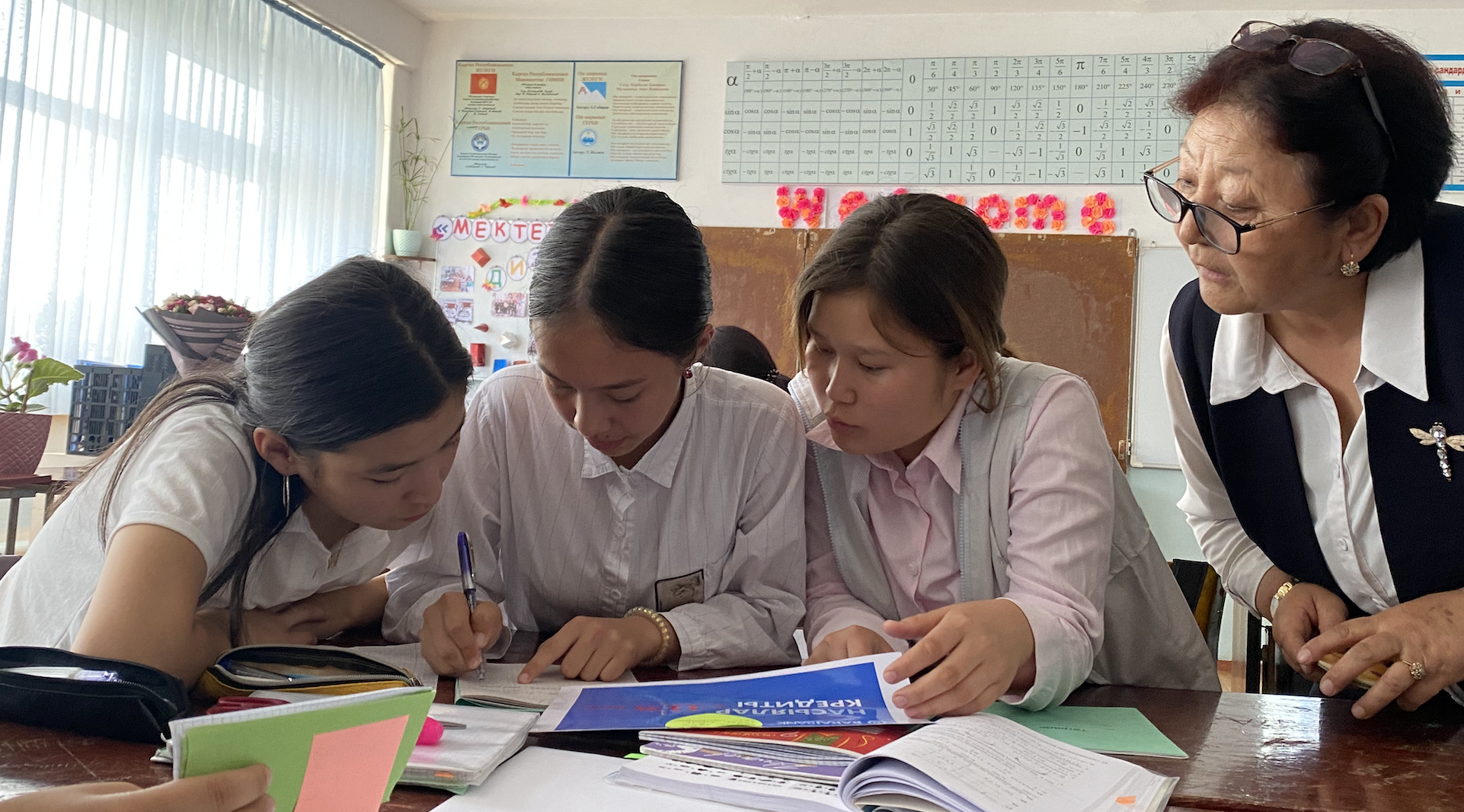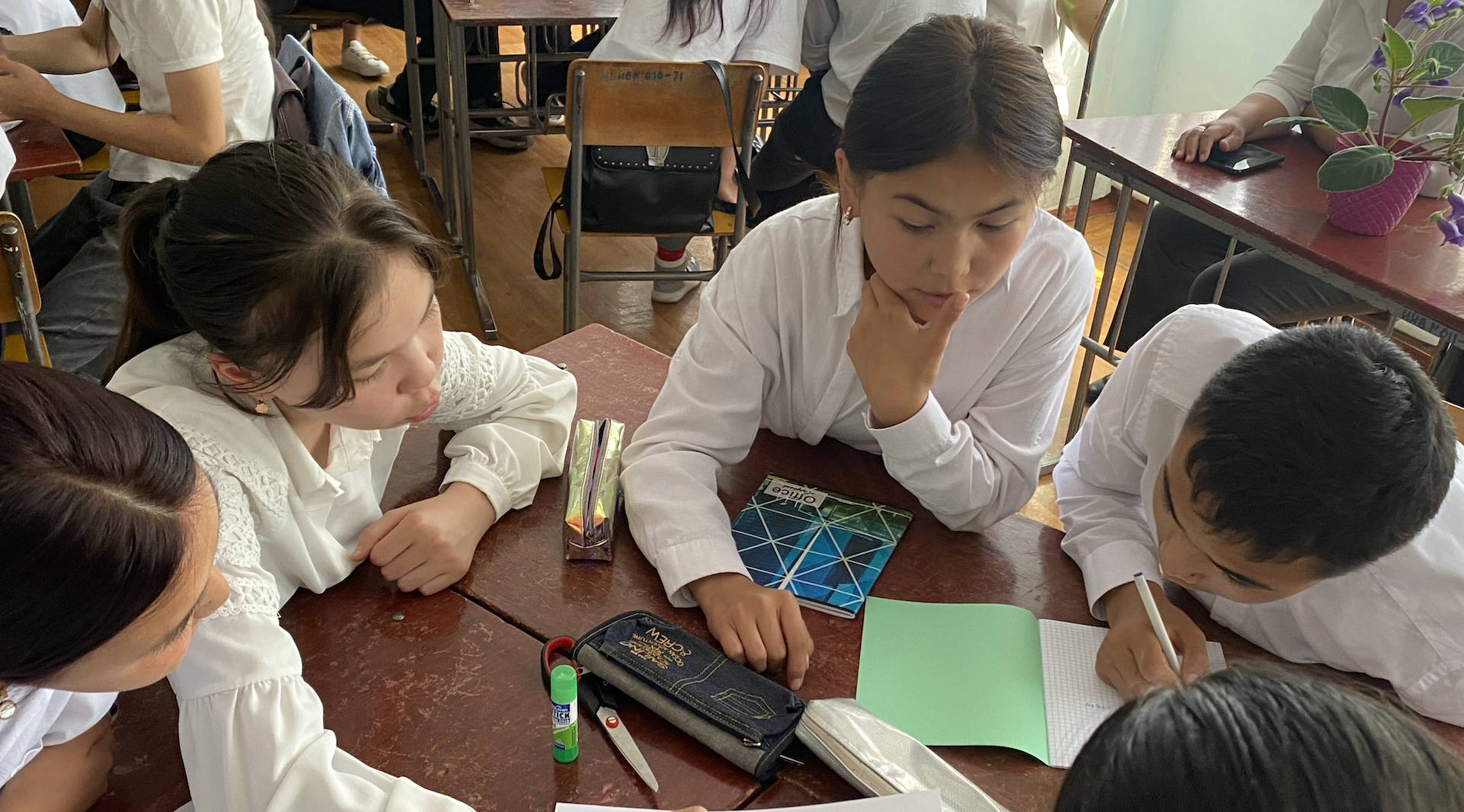The quality of education in Kyrgyz schools has always been an issue of national concern. Experiences from around the world suggest that the engagement of local communities in the management of schools brings transparency and accountability. This, in turn, leads to improvements in school management and brings about positive change to the quality of education.
Guided by these experiences and principles, between June 2017 and March 2022, the Aga Khan Foundation in the Kyrgyz Republic partnered with the World Bank and the Ministry of Education and Science (MoES) to bring about Engaging Communities for Better Schools (ECBS), an initiative aimed at promoting community engagement for the improved social accountability of schools. Innovations generated by communities through this initiative included the introduction of Boards of Trustees (BoT) at the school level.
Engaging Communities for Better Schools had been initiated to improve school processes and the quality of service delivery in 354 schools attended by more than 240,000 students. It had three key pillars (i) community engagement and capacity building; (ii) citizen feedback and joint action; (iii) micro-grants for priority investments in underprivileged schools.

The project far exceeded these original plans! Indeed, the innovations generated through the project were deemed so successful that the MoES made the decision to take them to the national level. Indeed, the MoES requested that 400 of its staff be trained on the approaches developed by the project, including around Boards of Trustees and social accountability tools. Its aim: to take these innovations to an additional 2,876 schools, kindergartens and TVET centers across the Kyrgyz Republic. The project also ended up supporting the MoES in introducing a legal requirement for educational institutions to have Boards of Trustees.
The results of the projects show that the percentage of parents and caregivers reporting improved accountability and responsiveness of teachers increased significantly compared to baseline values but that the percentage of students reporting improved accountability and responsiveness of teachers dropped compared to baseline values. This is explained by the momentous changes in teaching methods caused by the COVID-19 pandemic and the move to online learning for a large part of 2019-2021, which presented many challenges for both teachers and students.
Parents and caregivers in the project schools also reported greater empowerment. Importantly, they had reported lower empowerment but than in the comparison schools at the baseline but, at the endline, their empowerment exceeded those in the comparison schools.

Even more importantly, the project contributed to an increase in the ratio of poor to non-poor households that are engaged in their children’s education – from 24 to 61 per every 100 non-poor households. However, the aggregate percentage indicating parents’ engagement in children’s education in the project schools decreased since the baseline (from 70% to 62% for poor households and from 73% to 60% for non-poor), due to the fact that poverty increased during the pandemic, resulting in a much bigger endline sample of poor households. Parents and caregivers were likely forced to spend more time searching for income-generating opportunities to meet the basic needs of their households. Morevoer, many families, especially in rural areas, lack devices (smartphones, laptops, tablets) to access online education, which may also have limited parents’ ability to engage in their children’s education.

Significant improvements in academic performance were also reported by parents and students of the 9th and 11th grades in the project schools. Based on the endline survey with parents and caregivers, 72% of project schools have had improvements in academic performance (compared to 24% in comparison schools).
The AKF team in Kyrgyzstan has introduced an innovative product for social accountability and governance driven by community members. Boards of Trustees are an effective tool that could be iterated upon in other countries where AKF works, especially for the purpose of optimising decision-making at the state level. AKF in Kyrgyzstan will continue to cooperate closely with the MoES in order to continue improving the work already started.
With thanks to the World Bank and the Ministry of Education and Science for their partnership in this programme.




